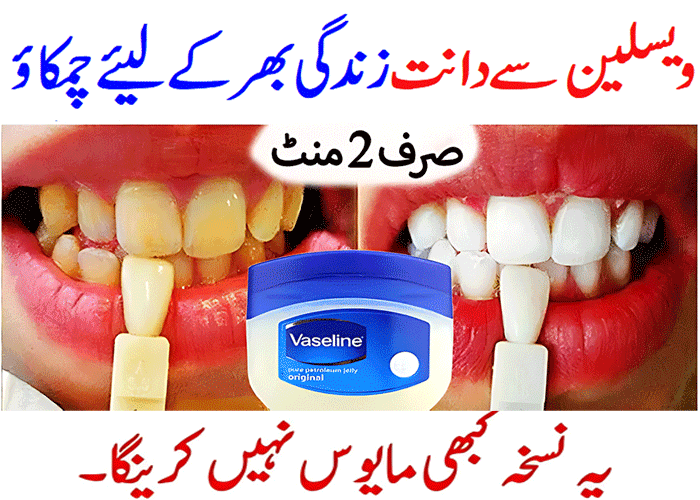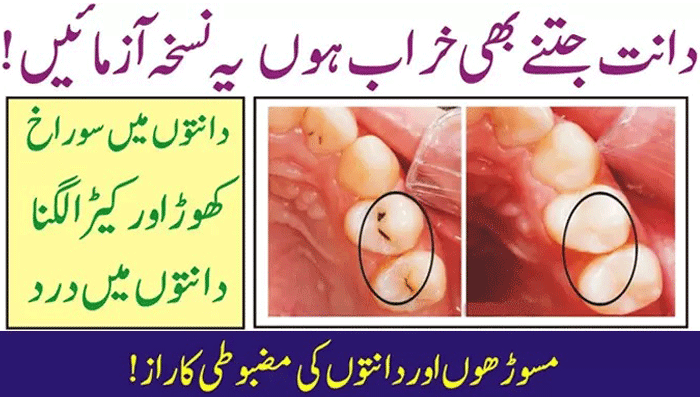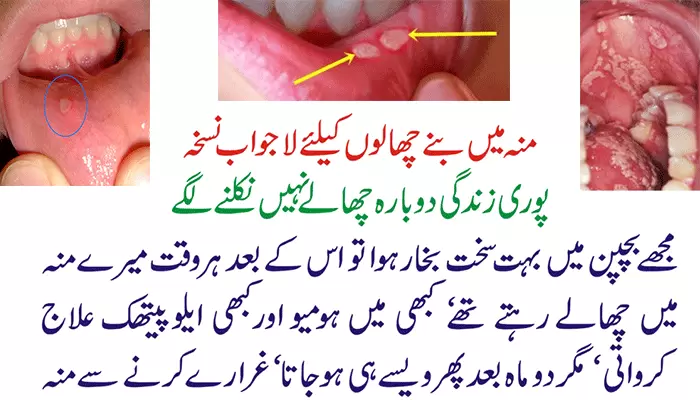
Toothaches are a universal discomfort that can disrupt daily life, making it challenging to focus on anything other than the persistent throbbing in your mouth. Among the most common culprits of toothache are issues with molar teeth, often requiring immediate attention.
While professional dental care is crucial, there are natural remedies that can offer relief and complement traditional treatments. In this article, we’ll explore effective home remedies for treating toothaches, with a focus on molar teeth pain.
Molar Teeth Pain Treatment with Home Remedies (Urdu)

Before trying home remedies, it’s important to know they can’t replace seeing a dentist. They may help for a short time and make you feel better, but they’re not a permanent fix for dental issues.
Molar Teeth Pain:
Molars, the large flat teeth at the back of your mouth, are susceptible to pain due to various reasons such as cavities, tooth decay, gum infections, or even grinding. The pain can be sharp, dull, or throbbing, and it often intensifies while chewing or consuming hot or cold foods.
1. Saltwater Rinse:
Begin your home remedy journey with a simple saltwater rinse. Mix a teaspoon of salt in a glass of warm water and use it as a mouthwash. This natural solution helps reduce inflammation, cleanses the mouth, and provides temporary relief from molar tooth pain.
2. Clove Oil:
Clove oil has been a traditional remedy for toothaches for centuries. It contains eugenol, a natural analgesic with anti-inflammatory properties. Dab a cotton ball in clove oil and gently apply it to the affected molar. Alternatively, you can mix a few drops of clove oil with a carrier oil and use it as a mouthwash.
3. Cold Compress:
A cold compress can be remarkably effective in reducing molar teeth pain. Wrap a few ice cubes in a thin cloth and apply it to the outside of your cheek, near the painful molar. The cold helps numb the area, providing relief from the throbbing sensation.
4. Peppermint Tea:
Peppermint tea is not just a refreshing beverage; it can also help alleviate toothache. Brew a cup of peppermint tea, let it cool, and swish it around your mouth before spitting it out. Peppermint’s natural anti-inflammatory properties can provide a soothing effect on the affected area.
5. Garlic Paste:
Garlic is renowned for its antimicrobial and analgesic properties. Crush a garlic clove to make a paste and apply it directly to the painful molar. The natural compounds in garlic can help combat infection and reduce pain.
6. Hydrogen Peroxide Rinse:
Create a diluted hydrogen peroxide solution by mixing equal parts of water and hydrogen peroxide. Gargle with this solution for about 30 seconds, then spit it out. This rinse can help reduce inflammation and kill bacteria in the mouth, providing relief from molar teeth pain.
7. Guava Leaves:
Guava leaves have anti-inflammatory and antimicrobial properties that can be beneficial for molar teeth pain. Chew on fresh guava leaves or boil them in water to create a mouthwash. This can help alleviate pain and promote oral health.
8. Warm Salt Compress:
In addition to a saltwater rinse, a warm salt compress can be effective in reducing molar tooth pain. Dissolve a teaspoon of salt in warm water, soak a cloth in the solution, and gently apply it to the outside of your cheek near the affected molar.
Conclusion:
While these natural remedies can provide temporary relief from molar teeth pain, it’s crucial to consult with a dental professional for a thorough examination and appropriate treatment. Remember that these remedies are not a cure but can help manage discomfort until you can seek professional help. Maintaining good oral hygiene practices, such as regular brushing and flossing, is essential in preventing toothaches and promoting overall dental health.
Incorporating these simple and natural remedies into your routine can offer a measure of comfort during those times when a toothache strikes. However, always prioritize professional dental care for a comprehensive and lasting solution to molar tooth pain.
Important FAQs about Teeth Pain:
Q1: Can I use over-the-counter pain relievers for molar teeth pain?
A1: Yes, over-the-counter pain relievers such as ibuprofen or acetaminophen can be used to manage molar teeth pain.
Q2: Is it safe to apply clove oil directly to the molar without dilution?
A2: While clove oil can provide relief, it is potent, and applying it directly without dilution may cause irritation. It’s advisable to mix a few drops of clove oil with a carrier oil like olive oil before applying it to the affected molar for a more controlled and comfortable application.
Q3: How often should I use a saltwater rinse for molar teeth pain?
A3: You can use a saltwater rinse multiple times a day, especially after meals or whenever you feel discomfort. However, avoid excessive use, as it may lead to dehydration of oral tissues. Maintaining a balanced approach is key to effectiveness.
Q4: Can I chew on guava leaves regularly for ongoing relief from molar teeth pain?
A4: While guava leaves can provide temporary relief, relying on them as a long-term solution is not recommended.
Q5: How long should I apply a cold compress for molar tooth pain?
A5: Apply a cold compress for about 15 minutes at a time, with breaks in between. Prolonged use may lead to numbness and potential damage to the skin. If the pain persists, it’s crucial to seek professional dental advice.
Q6: Can I use hydrogen peroxide as a mouthwash regularly for molar teeth pain?
A6: Regular use of hydrogen peroxide as a mouthwash is not recommended. It is best used as a temporary solution for its antibacterial properties. Prolonged use may lead to irritation and disruption of the natural balance of oral bacteria.
Q7: Are there specific foods to avoid during molar teeth pain?
A7: It’s advisable to avoid extremely hot or cold foods, as they can exacerbate molar teeth pain. Additionally, steer clear of sugary and acidic foods, as they can contribute to tooth decay and worsen the discomfort.
Q8: Can stress contribute to molar teeth pain?
A8: Yes, stress can contribute to teeth grinding (bruxism), which may lead to molar teeth pain. Incorporating stress-reduction techniques such as meditation or yoga into your routine may help alleviate this contributing factor.







